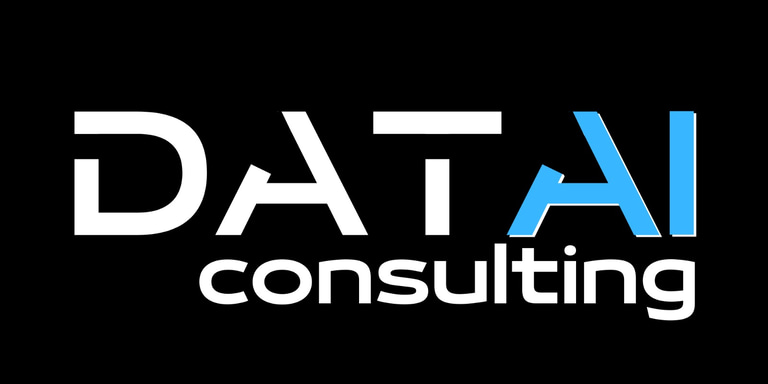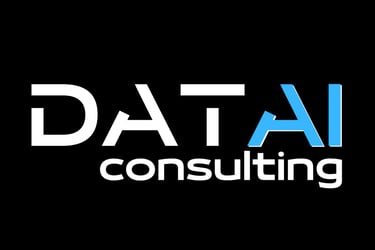How do you approach Artificial Intelligence?
Should we take Artificial Intelligence through the prism of 🎯 issues & needs or through the prism of 🛠️ techniques & tools? A new article, full of dialectics.
Sophie Stern
11/8/20233 min read


How should we approach Artificial Intelligence?
From the angle of technologies and tools? Or rather, from the angle of business challenges and needs?
There have always been 2 opposing views within companies:
The IT vision*: "The business doesn't know what it wants, it only talks about tools instead of needs!
The Business vision*: "IT doesn't know how to help us, it asks us for details about our needs, instead of talking to us about solutions".
With the arrival of Artificial Intelligence, the same difficulties of understanding between the different parties are resurfacing.
From what angle should we approach AI? Is it IT or Business that's right? The answer may well be more nuanced than that.
First, we'll look at why it's essential to start from Business issues, and even Enterprise issues; then, we'll see why it's not advisable to avoid understanding AI technologies.
In conclusion, we propose a structured approach.
Start with the company's challenges
The recommendation is to take the angle of the company's challenges, which may have been broken down by business unit if the company is large.
In fact, if we make the analogy of an apartment whose layout we want to change, we're not going to go through all the rooms with a hammer and screwdriver in hand, and then launch ourselves into a new project. On the contrary, we're going to start by asking ourselves what we want to transform in the apartment, before going into more detail. For example, we're going to highlight the need for more storage space in the apartment, as we have piles of books on the floor, and also the fact that we want to save on heating and therefore install thermal curtains.
The same applies to tools, or rather artificial intelligence tools. It's perhaps less romantic, but also less anxiety-provoking, to understand that AI is a set of software tools based on different techniques: mathematics, statistics, linguistics.
AI makes it possible to:
Diagnose 🩺 breakdowns, ... ;
Classify 📊 customers, ... ;
Optimize 🚑 tours, ... ;
Generate 📋 median texts, 🖼️des images, ...
...
In that case, shouldn't we start with AI methods and tools before studying the issues and needs?
Start with AI tools
If, on the other hand, the recommendation is to start from the AI technologies and tools available on the market, there's no point in imagining a dream apartment without knowing what's feasible with the technologies/tools available.
With a vague idea of the company's challenges and needs, we can set off with a clear understanding of Artificial Intelligence technologies, and even tools.
AI algorithms (~methods) implemented in open source libraries or in software responding to different business models are of different natures:
learning algorithms ;
generative AI LLMs ;
knowledge-based systems;
...
There is a plethora of AI tools and libraries today, not to mention the platforms of GAFAM and other unicorns. Aren't we in danger of drowning in this ocean of methods and tools without knowing exactly where we want to go? Aren't we in danger of wasting an inordinate amount of time (and money) trying to understand what each tool is for and how to use it, without knowing what we really need?
Such an approach isn't viable, yet it's the one proposed by many consulting and service companies. Take the toolbox and see where it leads...
Proposed structured approach 🎯
The two approaches developed above are somewhat extreme.
Indeed, starting with AI tools without knowing what the company's challenges or needs are, or starting from the latter without knowing the possibilities and limits of available AI technologies, doesn't really make sense.
Here is a suggested structured approach:
Understand the major challenges facing the company over the next 3 to 5 years;
Acculturate managers, CIOs, Co-Directors, etc. to the potential of Artificial Intelligence; Present suitable use cases;Detailing the company's objectives and business needs over 1 to 2 years;
Study the possibilities offered by AI in terms of algorithms, technologies and tools;Detailing use cases, estimating their value.
Estimate tools to be purchased, platform requirements. Estimate costs.
Position use cases in a time roadmap;LAUNCH THE PROJECT! 🚀
The author: Sophie Stern
CEO of DATAI consulting and Coach/Expert Consultant in Strategy and Transformation through Artificial Intelligence, Data and Digital,
I put my 20 years' experience of working with SMEs and key accounts at the service of your organization, to help you structure your strategy and boost your performance.
✉️ sophie@dataiconsulting.com




